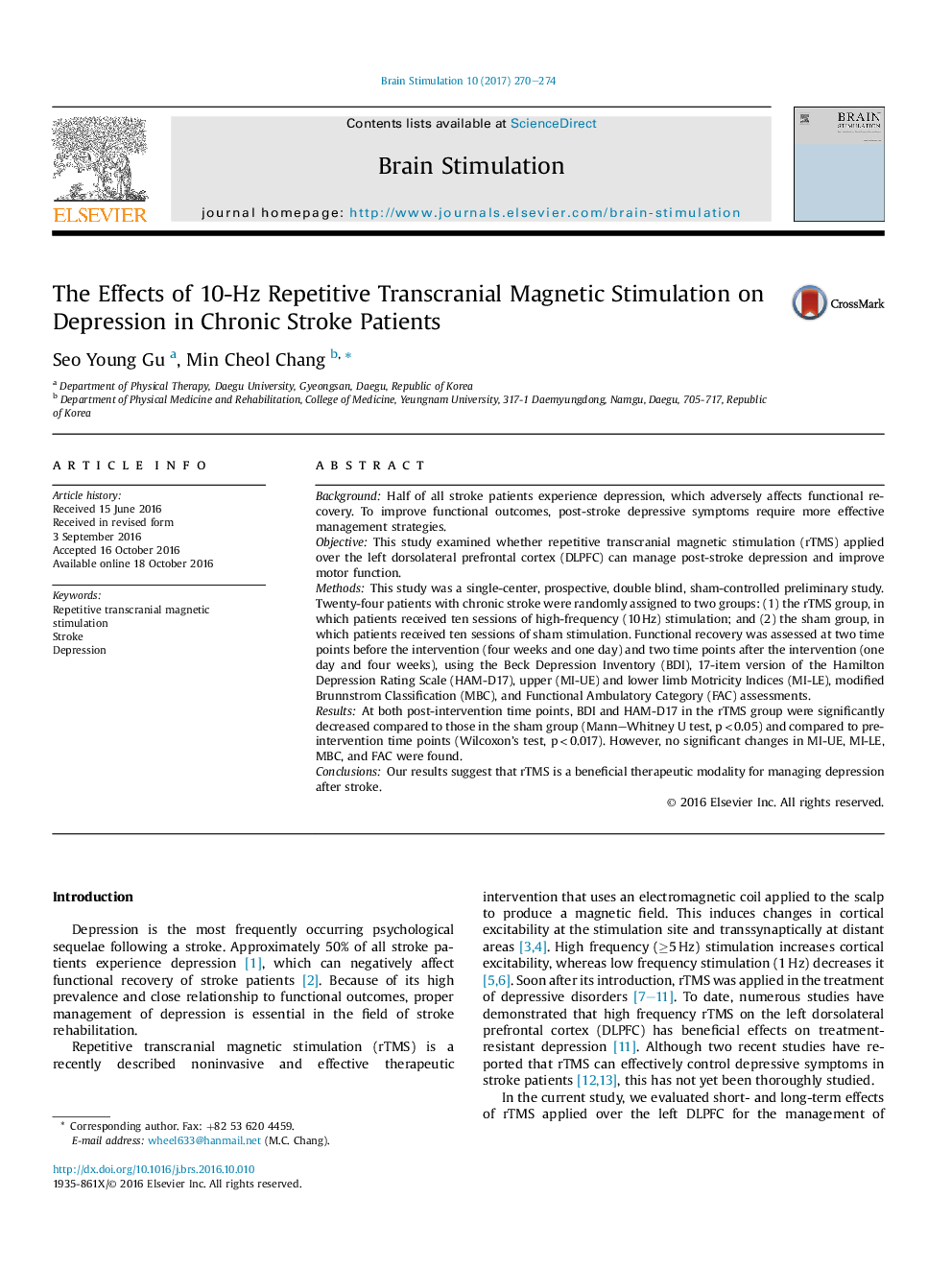| کد مقاله | کد نشریه | سال انتشار | مقاله انگلیسی | نسخه تمام متن |
|---|---|---|---|---|
| 5626699 | 1406326 | 2017 | 5 صفحه PDF | دانلود رایگان |
- 10-Hz rTMS on the left DLPFC is effective in managing post-stroke depression.
- The effect for managing depression was sustained at least 1 month.
- We showed the potential utility of rTMS for managing depression in stroke patients.
BackgroundHalf of all stroke patients experience depression, which adversely affects functional recovery. To improve functional outcomes, post-stroke depressive symptoms require more effective management strategies.ObjectiveThis study examined whether repetitive transcranial magnetic stimulation (rTMS) applied over the left dorsolateral prefrontal cortex (DLPFC) can manage post-stroke depression and improve motor function.MethodsThis study was a single-center, prospective, double blind, sham-controlled preliminary study. Twenty-four patients with chronic stroke were randomly assigned to two groups: (1) the rTMS group, in which patients received ten sessions of high-frequency (10âHz) stimulation; and (2) the sham group, in which patients received ten sessions of sham stimulation. Functional recovery was assessed at two time points before the intervention (four weeks and one day) and two time points after the intervention (one day and four weeks), using the Beck Depression Inventory (BDI), 17-item version of the Hamilton Depression Rating Scale (HAM-D17), upper (MI-UE) and lower limb Motricity Indices (MI-LE), modified Brunnstrom Classification (MBC), and Functional Ambulatory Category (FAC) assessments.ResultsAt both post-intervention time points, BDI and HAM-D17 in the rTMS group were significantly decreased compared to those in the sham group (Mann-Whitney U test, pâ<â0.05) and compared to pre-intervention time points (Wilcoxon's test, pâ<â0.017). However, no significant changes in MI-UE, MI-LE, MBC, and FAC were found.ConclusionsOur results suggest that rTMS is a beneficial therapeutic modality for managing depression after stroke.
Journal: Brain Stimulation - Volume 10, Issue 2, MarchâApril 2017, Pages 270-274
